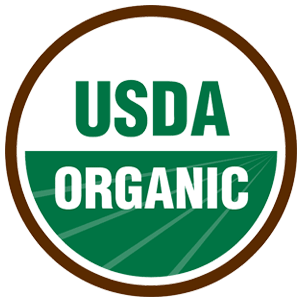Discover the real difference between organic foods and their traditionally grown counterparts when it comes to nutrition, safety and price.
Once found only in health food stores, organic food is now a regular feature at most supermarkets. And that's created a bit of a dilemma in the produce aisle. On one hand, you have a conventionally grown apple. On the other, you have one that's organic. Both apples are firm, shiny and red. Both provide vitamins and fiber, and both are free of fat, sodium and cholesterol. Which should you choose? Conventionally grown produce generally costs less, but is organic food safer or more nutritious? Get the facts before you shop.Conventional vs. organic farming
The word "organic" refers to the way farmers grow and process agricultural products, such as fruits, vegetables, grains, dairy products and meat. Organic farming practices are designed to encourage soil and water conservation and reduce pollution. Farmers who grow organic produce and meat don't use conventional methods to fertilize, control weeds or prevent livestock disease. For example, rather than using chemical weedkillers, organic farmers may conduct more sophisticated crop rotations and spread mulch or manure to keep weeds at bay. Here are some key differences between conventional farming and organic farming:| Conventional | Organic |
|---|---|
| Apply chemical fertilizers to promote plant growth. | Apply natural fertilizers, such as manure or compost, to feed soil and plants. |
| Spray insecticides to reduce pests and disease. | Use beneficial insects and birds, mating disruption or traps to reduce pests and disease. |
| Use herbicides to manage weeds. | Rotate crops, till, hand weed or mulch to manage weeds. |
| Give animals antibiotics, growth hormones and medications to prevent disease and spur growth. | Give animals organic feed and allow them access to the outdoors. Use preventive measures — such as rotational grazing, a balanced diet and clean housing — to help minimize disease. |
Organic or not? Check the label
 The U.S. Department of Agriculture (USDA) has established an organic certification program that requires all organic foods to meet strict government standards. These standards regulate how such foods are grown, handled and processed.
Any product labeled as organic must be USDA certified. Only producers who sell less than $5,000 a year in organic foods are exempt from this certification; however, they're still required to follow the USDA's standards for organic foods.
If a food bears a USDA Organic label, it means it's produced and processed according to the USDA standards. The seal is voluntary, but many organic producers use it.
The U.S. Department of Agriculture (USDA) has established an organic certification program that requires all organic foods to meet strict government standards. These standards regulate how such foods are grown, handled and processed.
Any product labeled as organic must be USDA certified. Only producers who sell less than $5,000 a year in organic foods are exempt from this certification; however, they're still required to follow the USDA's standards for organic foods.
If a food bears a USDA Organic label, it means it's produced and processed according to the USDA standards. The seal is voluntary, but many organic producers use it.
Products certified 95 percent or more organic display this USDA seal.
- 100 percent organic. To use this phrase, products must be either completely organic or made of all organic ingredients.
- Organic. Products must be at least 95 percent organic to use this term.
Do 'organic' and 'natural' mean the same thing?
No, "natural" and "organic" are not interchangeable terms. You may see "natural" and other terms such as "all natural," "free-range" or "hormone-free" on food labels. These descriptions must be truthful, but don't confuse them with the term "organic." Only foods that are grown and processed according to USDA organic standards can be labeled organic.Organic food: Is it more nutritious?
Probably not, but the answer isn't yet clear. A recent study examined the past 50 years' worth of scientific articles about the nutrient content of organic and conventional foods. The researchers concluded that organically and conventionally produced foodstuffs are comparable in their nutrient content.Organic food: Other considerations
Many factors influence the decision to choose organic food. Some people choose organic food because they prefer the taste. Yet others opt for organic because of concerns such as:- Pesticides. Conventional growers use pesticides to protect their crops from molds, insects and diseases. When farmers spray pesticides, this can leave residue on produce. Some people buy organic food to limit their exposure to these residues. According to the USDA, organic produce carries significantly fewer pesticide residues than does conventional produce. However, residues on most products — both organic and nonorganic — don't exceed government safety thresholds.
- Food additives. Organic regulations ban or severely restrict the use of food additives, processing aids (substances used during processing, but not added directly to food) and fortifying agents commonly used in nonorganic foods, including preservatives, artificial sweeteners, colorings and flavorings, and monosodium glutamate.
- Environment. Some people buy organic food for environmental reasons. Organic farming practices are designed to benefit the environment by reducing pollution and conserving water and soil quality.
Source



Leave a comment